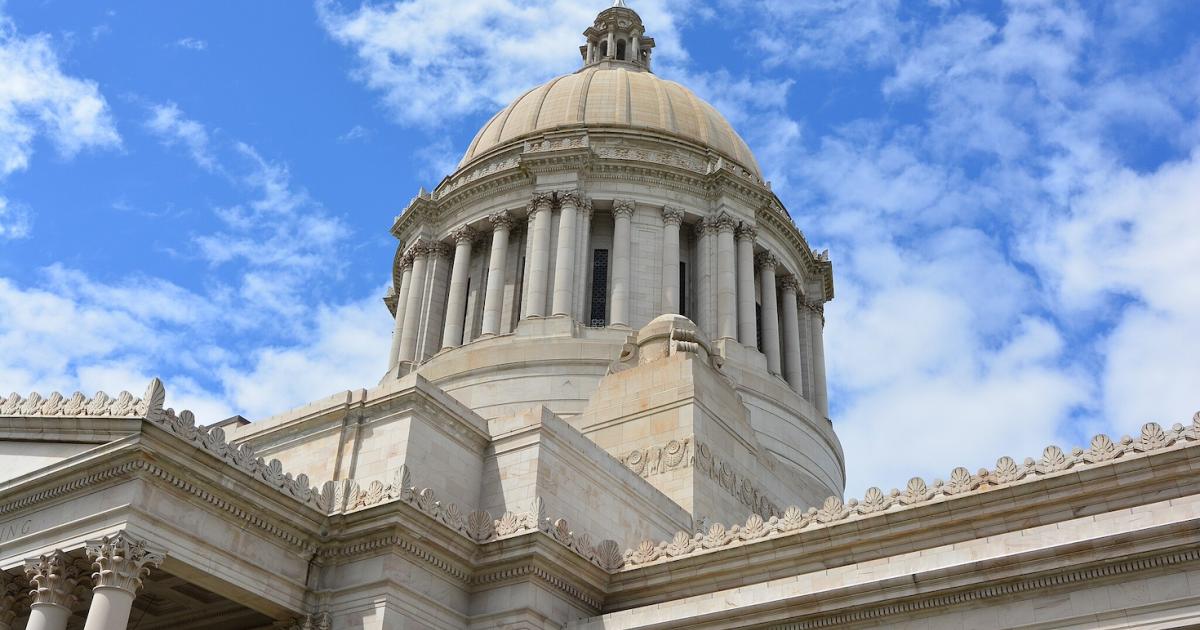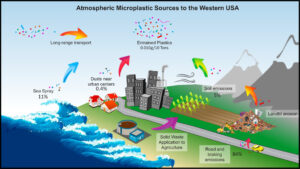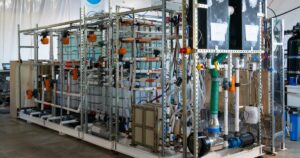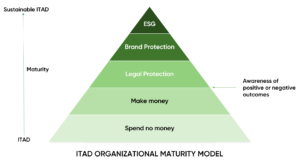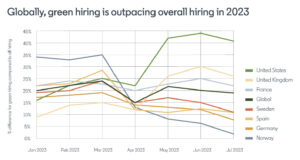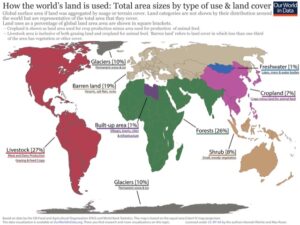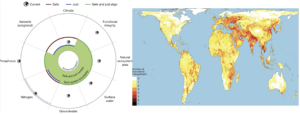
ISSAQUAH, Wash. — Some lawmakers across the country think the future of climate policy looks like this: A growing network of states forming a carbon market, forcing polluters to pay by the ton for the greenhouse gases they emit and reinvesting the revenues into clean energy and electrification projects.
Such programs, known as cap-and-trade, limit carbon emissions to a set amount that shrinks each year, and require businesses to bid at auctions for permits known as "allowances" for each ton they emit. Organizations may trade or sell those allowances with one another.
With an established program in California, a newly created system in Washington state and a plan in New York that’s still in development, cap-and-trade is poised to cover a quarter of the American economy.
But less than a year into cap-and-trade, Washington state is facing backlash over the program’s perceived contribution to high gas prices. A voter initiative that’s likely to be on the ballot next year, stoked by anger over prices at the pump, threatens to repeal it altogether.
The fight over the ballot initiative, regardless of whether it passes, could delay Washington’s plan to link its market with California’s. And leaders in New York, where state officials are still drawing up their own rules for cap-and-trade, say they’re watching Washington with concern. In other Northeastern states, which may follow New York, lawmakers are waiting for the dominoes to fall.
The future of cap-and-trade, some advocates say, may hinge on next year’s battle in Washington state.
"Why do you think I spent 80 hours a week on this?" said Washington state Sen. Joe Nguyễn, a Democrat who chairs the Senate Environment, Energy & Technology Committee. "This is the future of decarbonization. This has implications not just in Washington state, it has implications globally."
Climate Commitment Act
Climate advocates credit Washington’s enactment of cap-and-trade in 2021 with reviving momentum for such programs. The state’s measure came 15 years after California passed its law, and just over a decade after President Barack Obama’s effort to create a federal program failed in Congress.
Washington lawmakers designed the Climate Commitment Act, championed by then-state Sen. Reuven Carlyle, a Democrat, to address criticisms that had plagued California’s program. It requires air quality monitoring in low-income and minority neighborhoods that have disproportionately suffered from pollution. It creates stricter limits on the use of carbon "offsets" such as tree planting to skirt direct emissions reductions. And it requires a significant portion of the money raised by carbon auctions to be invested in marginalized communities.
Less than a year into cap-and-trade, Washington state is facing backlash over the program’s perceived contribution to high gas prices.
Supporters hailed the law as Democratic Gov. Jay Inslee’s crowning climate achievement and a template for tackling climate change without leaving behind the communities it threatens most. Earlier this year, New York lawmakers approved their own cap-and-trade law.
"We’re hopeful that we can help this scale to a national and worldwide level," said Carlyle, who now leads a startup that provides consulting and financing for climate-conscious organizations. "It’s fair to say that the New York regulations are built upon the Climate Commitment Act, both politically and in terms of policy."
While New York officials draw up their own program, the Washington leaders they followed are playing defense. In the first quarterly carbon auctions held under the Washington program this year, prices per ton nearly doubled those in California, triggering a pair of special auctions designed to bring reserve allowances onto the market when prices are high.
State officials blame the high prices on unexpectedly strong demand early on, and say prices are likely to settle over time as companies stockpile allowances to prepare for the first compliance deadline next November.
But some industry groups, such as the Western States Petroleum Association, say the high price for carbon has increased costs for consumers. They argue that the law needs major adjustments. Kevin Slagle, the group’s vice president of strategic communications, said lawmakers need to consider putting more allowances on the market and temporarily exempting fuel suppliers from the program. He acknowledged that may set back the state’s deadlines for reducing emissions.
"[Cap-and-trade] doesn’t need to be eliminated, it just needs to get fixed," he said. "Some of the targets the state set were going to be challenging under the best circumstances. You may have to adjust some of these goals or stretch them out."
Gas price debate
Gas prices have fluctuated the past year, both in Washington and nationwide. But prices in Washington, while declining in recent months, are 41 cents higher than they were when cap-and-trade took effect at the start of the year, according to the U.S. Energy Information Administration. Slagle blames the carbon program. State officials say the program is not the largest variable driving fuel costs, citing global supply and demand issues, as well as regional pipeline and refinery capacity.
"There’s been no indication that the allowance price is driving what’s happening at retail gas stations after [carbon auctions]," said Andy Wineke, assistant communications director with the Washington State Department of Ecology.
This should be a big red flag to politicians that we need programs that work not only for the climate but also for everyday people.
Last month, opponents of the program turned in more than 400,000 signatures they’d gathered — enough to qualify for the ballot — supporting an initiative to repeal cap-and-trade. If certified by the secretary of state, the repeal measure would go before voters next year.
Backers of cap-and-trade say the repeal effort is a real threat, and they blame the Western States Petroleum Association for overstating the law’s effect on gas prices and stoking consumer fears. Nguyễn, the state senator, is planning to back a bill next session that would force oil companies to disclose to state regulators the supply chain costs of the fuel they sell at the pump.
"These guys are gonna screw people over and blame it on climate policies," he said. "They know that climate denial doesn’t work, so they’ve moved on to climate delay."
Any accounting of the costs borne by consumers, Nguyễn added, should include the health care burden from breathing polluted air and the economic impact of flooding, heat waves and weather disasters. Supporters argue that cap-and-trade is reducing those costs far more than it is increasing prices at the pump.
The $1.5 billion raised so far in the state’s carbon auctions is funding projects including electric school buses, public transit, tribal solar projects, air quality improvements and electric vehicle chargers. Backers say the state is using the revenue to provide matching funds for grant programs enacted under the climate and infrastructure bills passed by Congress, bringing back $5 in federal money for every dollar invested by the state.
"Washington is better positioned than any other state in the nation to leverage billions of dollars of federal funding," Carlyle said, pointing to a $1 billion hydrogen hub recently awarded by the U.S. Department of Energy to the region, which used cap-and-trade revenue to cover the required state match.
Carlyle noted that the $17 billion transportation package state lawmakers passed last year relies heavily on projected revenues from cap-and-trade. The ballot measure to repeal the program could unravel the state’s plan to fund its roads, bridges and ferries.
Still, the state’s gas prices — long among the highest in the nation — are a more immediate concern for some voters.
"This should be a big red flag to politicians that we need programs that work not only for the climate but also for everyday people," said Slagle, the petroleum industry spokesperson.
Amid the pushback, Washington regulators announced last month that they were taking the first steps to link the state’s program with the joint carbon market already covering California and Quebec, Canada. The goal is to hold joint auctions to stabilize prices and to create an easier way for more states to join.
"It’s likely that the linked market will pull Washington’s prices down," said Joel Creswell, who oversees Washington’s cap-and-trade program within the state Department of Ecology. "It’s a larger pool with more entities competing."
But the repeal initiative is complicating that effort. State regulators have asked legislators to tweak the law to align market rules with future partners in California and Quebec. But legislating an issue that’s subject to a ballot measure may require that the "linkage" question also go on the ballot alongside the repeal provision — a scenario that might prompt lawmakers to wait until the first question is settled by voters.
Proponents say Washington won’t be able to link markets until 2025, which could be further delayed by the ballot conundrum.
Eyes on Washington
Other states are paying close attention to the turmoil in Washington.
"That [consumer backlash] has been a concern from the beginning," said New York state Sen. Kevin Parker, a Democrat who has championed cap-and-trade. "I’ve been following other places. Gas prices are one of the big concerns."
Unlike Washington, New York lawmakers did not create a detailed cap-and-trade program, instead directing regulators at the state Department of Environmental Conservation and the New York State Energy Research and Development Authority to draw up a new system. That framework is expected to be released in the coming weeks. Parker said the agencies will need to design a program that doesn’t overburden consumers.
Neither agency granted an interview request.
Washington’s struggle shows the degree to which gas prices can be used as a scare tactic to kill climate policy, said Ava Gallo, climate and energy program manager with the National Caucus of Environmental Legislators, a collaborative forum for state lawmakers.
"Whether or not that argument has true validity, it has incredible sway over the public," she said. "[Washington’s] program had been in development in the legislature for more than a decade. To have all that effort be repealed would be pretty destructive [to cap-and-trade proposals nationwide]."
In Vermont, lawmakers have made strides at reducing emissions from electricity generation and buildings, but transportation has proven much more difficult. They’re waiting to see how other states act.
"I don’t know how we really tackle our transportation challenges as a small, rural state if we don’t work to leverage the benefits and capital of our neighbors," said Vermont Democratic state Rep. Gabrielle Stebbins, who co-chairs the legislature’s Climate Solutions Caucus. "When we start to see some regulations and program design on paper [from New York], that’s when we’ll start to say, ‘OK, how might Vermont fit into this?’"
Stebbins said counterparts in Maine, Massachusetts, New Hampshire and Rhode Island also are likely asking similar questions.
- SEO Powered Content & PR Distribution. Get Amplified Today.
- PlatoData.Network Vertical Generative Ai. Empower Yourself. Access Here.
- PlatoAiStream. Web3 Intelligence. Knowledge Amplified. Access Here.
- PlatoESG. Carbon, CleanTech, Energy, Environment, Solar, Waste Management. Access Here.
- PlatoHealth. Biotech and Clinical Trials Intelligence. Access Here.
- Source: https://www.greenbiz.com/article/future-cap-and-trade-carbon-markets-could-hinge-washington-state
- :has
- :is
- :not
- :where
- $1 billion
- $UP
- 000
- 15 years
- 15%
- 2021
- 2025
- 400
- 41
- 7
- 80
- a
- Able
- According
- Accounting
- achievement
- acknowledged
- across
- Act
- added
- address
- adjustments
- administration
- advocates
- After
- agencies
- agency
- AIR
- align
- All
- alongside
- already
- also
- altogether
- American
- American economy
- among
- amount
- an
- and
- and infrastructure
- anger
- announced
- Another
- any
- approved
- ARE
- argue
- argument
- AS
- asking
- Assistant
- Association
- At
- attention
- Auctions
- authority
- Ava
- awarded
- back
- backers
- ballot
- Battle
- BE
- been
- before
- Beginning
- behind
- benefits
- BEST
- Better
- bid
- Big
- Bill
- Billion
- billions
- Bills
- both
- breathing
- bridges
- bring
- Bringing
- built
- burden
- Buses
- businesses
- but
- by
- california
- came
- CAN
- Canada
- Capacity
- capital
- carbon
- carbon emissions
- care
- Carlyle
- Certified
- chain
- challenges
- challenging
- championed
- change
- circumstances
- citing
- clean
- clean energy
- Climate
- Climate change
- Close
- collaborative
- coming
- coming weeks
- commitment
- committee
- Communications
- Communities
- Companies
- competing
- compliance
- Concern
- Concerns
- Congress
- CONSERVATION
- Consider
- consulting
- consumer
- Consumers
- contribution
- conundrum
- Costs
- could
- counterparts
- country
- cover
- covering
- create
- created
- creates
- credit
- criticisms
- deadline
- decade
- decarbonization
- Declining
- Defense
- Degree
- delay
- Delayed
- Demand
- Democrat
- democratic
- Department
- Department of Energy
- Design
- designed
- detailed
- Development
- DID
- difficult
- direct
- directing
- Director
- disasters
- Disclose
- do
- Doesn’t
- Dollar
- dollars
- Dont
- doubled
- down
- draw
- drawing
- driving
- each
- Earlier
- Early
- easier
- Economic
- Economic Impact
- economy
- effect
- effort
- Electric
- electric vehicle
- electricity
- eliminated
- Emissions
- energy
- enough
- entities
- Environment
- environmental
- established
- Ether (ETH)
- Every
- everyday
- expected
- facing
- Failed
- fair
- Fall
- far
- fears
- Federal
- fight
- financing
- First
- first steps
- fit
- fixed
- fluctuated
- follow
- followed
- following
- For
- For Consumers
- Force
- forcing
- Forum
- Framework
- from
- Fuel
- fund
- funding
- funds
- further
- future
- GAS
- gas prices
- gathered
- generation
- get
- Global
- Globally
- Go
- goal
- going
- grant
- granted
- Group’s
- Growing
- had
- Hampshire
- Happening
- Have
- he
- Health
- Health Care
- heavily
- Held
- help
- High
- higher
- highest
- Hinge
- hold
- hopeful
- HOURS
- How
- HTTPS
- Hub
- hydrogen
- i
- if
- immediate
- Impact
- implications
- improvements
- in
- In other
- include
- Including
- increased
- increasing
- incredible
- indication
- industry
- information
- Infrastructure
- Initiative
- instead
- Interview
- into
- invested
- island
- issue
- issues
- IT
- ITS
- joe
- joel
- join
- joint
- jpg
- just
- Kill
- Know
- known
- larger
- largest
- Last
- Last Year
- Law
- lawmakers
- leaders
- Leads
- leaving
- legislators
- Legislature
- less
- Level
- Leverage
- like
- likely
- LIMIT
- limits
- LINK
- linked
- Long
- LOOKS
- made
- Maine
- major
- manager
- Market
- Markets
- massachusetts
- Match
- matching
- May..
- measure
- might
- minority
- Momentum
- money
- monitoring
- Month
- months
- more
- most
- moved
- much
- nation
- National
- Nationwide
- nearly
- Need
- needs
- neighbors
- network
- New
- New York
- New York state
- newly
- next
- no
- noted
- November
- now
- of
- officials
- offsets
- Oil
- on
- ONE
- only
- opponents
- or
- organizations
- Other
- our
- out
- over
- own
- package
- pair
- Paper
- partners
- passed
- passes
- past
- Pay
- paying
- People
- per
- perceived
- permits
- Petroleum
- pipeline
- Places
- plagued
- plan
- planning
- Planting
- plato
- Plato Data Intelligence
- PlatoData
- playing
- poised
- policies
- policy
- politically
- Pollution
- pool
- portion
- positioned
- Prepare
- president
- pretty
- price
- Prices
- Program
- Programs
- projected
- projects
- Proposals
- proven
- provide
- provides
- provision
- public
- public transit
- pump
- Putting
- qualify
- quality
- Quarter
- quarterly
- Quebec
- question
- Questions
- raised
- real
- really
- recent
- recently
- Red
- reducing
- reducing emissions
- reductions
- Regardless
- region
- regional
- regulations
- Regulators
- released
- request
- require
- required
- requires
- research
- research and development
- Reserve
- retail
- revenue
- revenues
- roads
- rules
- Rural
- s
- Said
- say
- Scale
- scenario
- School
- secretary
- see
- sell
- Senate
- Senator
- session
- set
- settle
- Settled
- she
- should
- Shows
- Signatures
- significant
- similar
- small
- So
- so Far
- solar
- Solutions
- some
- special
- spent
- spokesperson
- stabilize
- start
- startup
- State
- State Department
- States
- Stations
- Steps
- Still
- Strategic
- Strategic Communications
- stricter
- strides
- strong
- Struggle
- subject
- such
- suppliers
- supply
- Supply and Demand
- supply chain
- Supply Chain Costs
- supporters
- Supporting
- system
- tackle
- tackling
- taking
- targets
- Technology
- template
- terms
- than
- that
- The
- The Future
- the joint
- the Law
- The State
- their
- Them
- These
- they
- think
- this
- this year
- those
- threat
- threatens
- time
- to
- Ton
- took
- trade
- transit
- transportation
- tree
- Tribal
- triggering
- true
- Turned
- tweak
- u.s.
- under
- unravel
- until
- upon
- use
- used
- using
- variable
- vehicle
- Vermont
- vice
- Vice President
- Voter
- voters
- wait
- Waiting
- washington
- washington state
- watching
- waves
- Way..
- we
- Weather
- week
- Weeks
- WELL
- were
- Western
- when
- whether
- which
- while
- WHO
- why
- will
- with
- within
- without
- Work
- worldwide
- would
- year
- years
- york
- you
- zephyrnet

